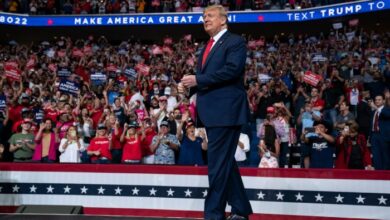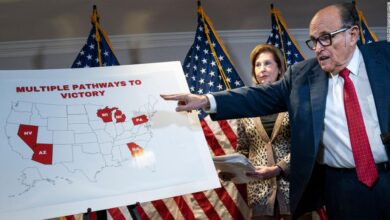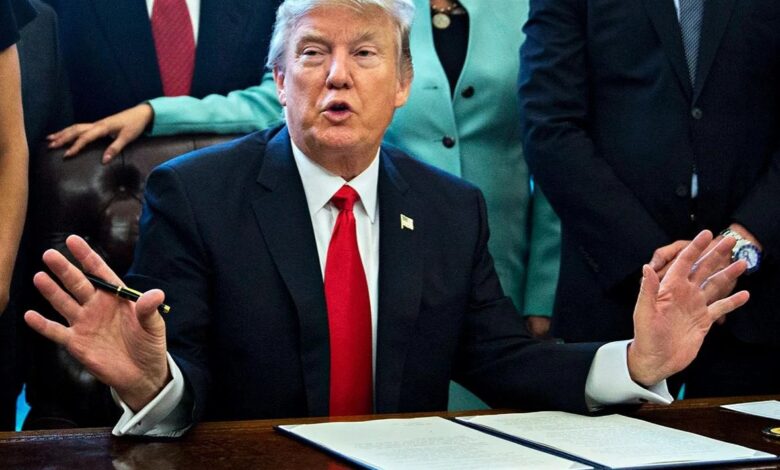
Federal Appeals Court Allows House Committee Access to Trumps Tax Returns
Federal appeals court says house committee can get trumps tax returns, marking a significant victory for congressional oversight and potentially setting a precedent for future investigations into former presidents. The decision, handed down by a three-judge panel of the U.S.
Court of Appeals for the District of Columbia Circuit, upheld a lower court ruling that rejected Donald Trump’s efforts to block the release of his tax returns to the House Ways and Means Committee. The committee had requested the documents as part of its investigation into the former president’s financial dealings and potential conflicts of interest.
The court’s decision is a major development in the ongoing battle between Congress and the executive branch over access to information. It could have far-reaching implications for future investigations into former presidents and the extent to which Congress can exercise oversight over the executive branch.
The ruling also highlights the importance of transparency and accountability in government, particularly when it comes to the financial dealings of those in positions of power.
The Case and its Significance
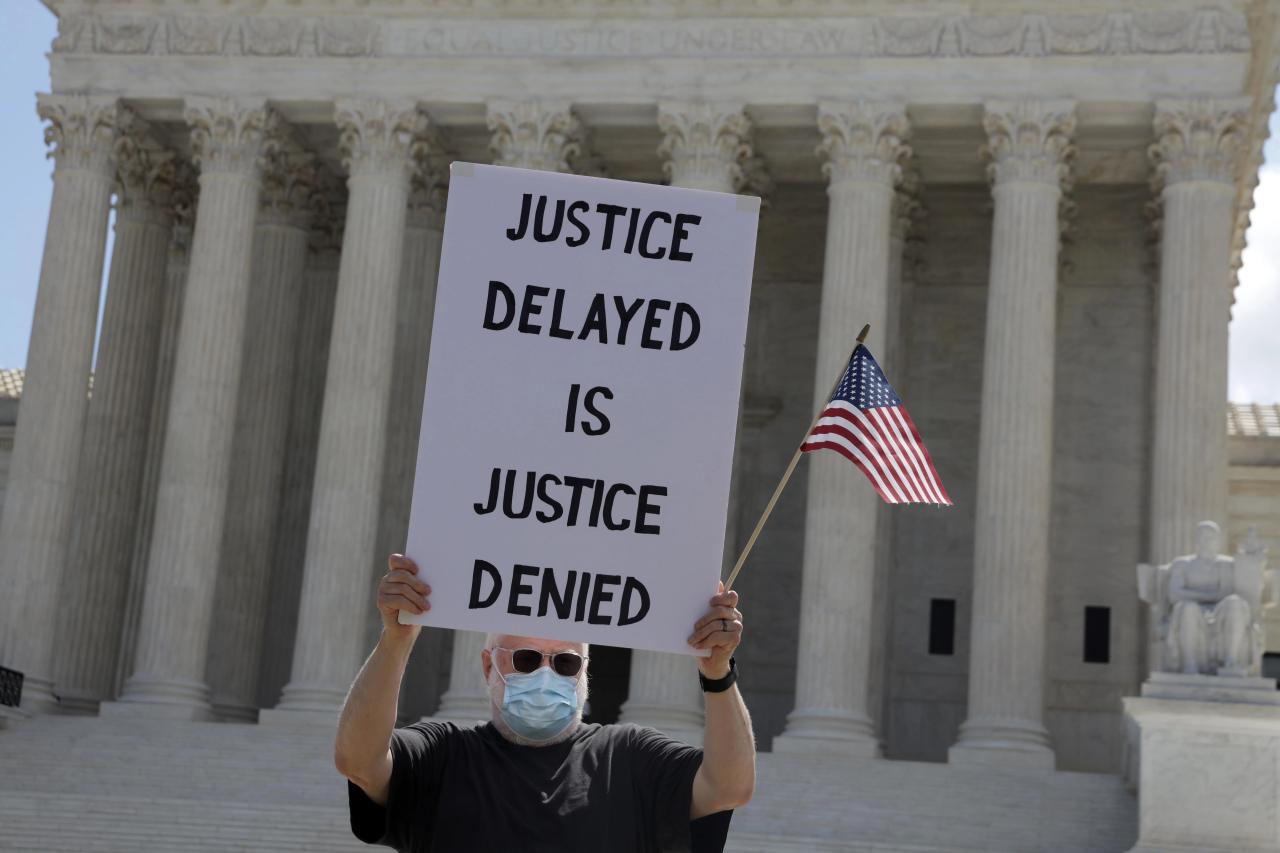
The recent ruling by the federal appeals court upholding a House committee’s right to obtain former President Donald Trump’s tax returns marks a significant legal victory for congressional oversight and transparency. This decision has far-reaching implications for future investigations into former presidents and the balance of power between the legislative and executive branches.
The Legal Basis for the Request
The House Committee’s request for Trump’s tax returns was based on a provision in the Internal Revenue Code, which grants the congressional tax-writing committees the authority to request taxpayer information from the IRS. This provision, known as Section 6103, allows the committees to access tax returns for “legislative purposes,” including the development of tax laws and the oversight of the IRS.
The committee argued that it needed Trump’s tax returns to investigate potential conflicts of interest and financial irregularities, including whether he had properly disclosed his foreign business dealings and potential conflicts of interest while in office. The court found that the committee’s request met the “legislative purposes” requirement, rejecting Trump’s arguments that the request was politically motivated and lacked a legitimate legislative purpose.
The recent ruling by the federal appeals court allowing the House committee to access Trump’s tax returns brings up an interesting point about privacy. While some might argue that public figures should be held accountable, it’s also worth considering the line between transparency and intrusion.
Dua Lipa, for example, recently spoke out about the pressure some artists feel to constantly share their personal lives, arguing that some are ruthless in their approach. Ultimately, the Trump tax return case raises questions about the balance between public interest and individual privacy, a topic that resonates with the challenges artists face in navigating their public personas.
The Potential Implications for Future Investigations
This decision could have a significant impact on future investigations into former presidents and the balance of power between Congress and the executive branch. It affirms Congress’s oversight authority and could embolden future congressional committees to seek information from former presidents, including financial records, as part of their investigations.This ruling could also lead to greater transparency in presidential financial dealings, as former presidents may be more hesitant to engage in potentially questionable financial practices if they know their tax returns could be subject to congressional scrutiny.
Historical Context
Previous attempts to access presidential tax returns have been met with resistance from both presidents and the courts. In 1974, Congress sought President Richard Nixon’s tax returns as part of the Watergate investigation, but Nixon refused to comply. The Supreme Court ultimately ruled that Nixon had to release the tapes, but the court did not address the issue of presidential tax returns.
In 1977, President Jimmy Carter voluntarily released his tax returns, setting a precedent for future presidents. However, in 1986, President Ronald Reagan refused to release his tax returns, citing privacy concerns. This led to a legal battle that ultimately ended with a compromise: Reagan released summaries of his tax returns, but not the full returns themselves.
The recent court decision marks a significant departure from this historical precedent. It is the first time a court has upheld Congress’s right to access a former president’s tax returns under Section 6103, potentially paving the way for greater congressional oversight of presidential finances in the future.
Trump’s Arguments and the Court’s Reasoning
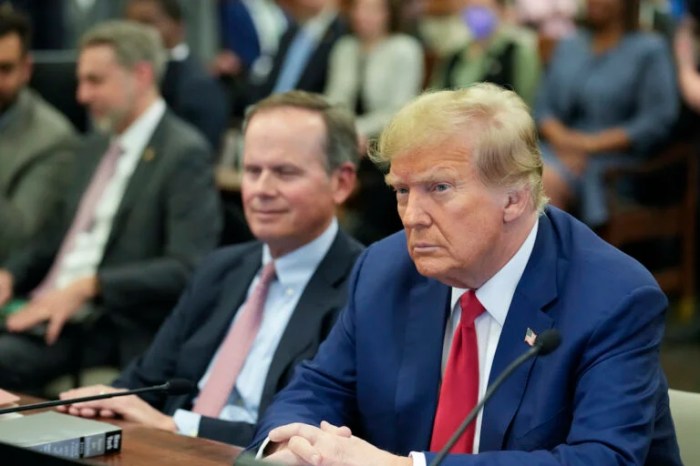
The appeals court’s decision to uphold the House Committee’s access to Trump’s tax returns was a significant legal victory for the committee, but it was not a foregone conclusion. Trump’s legal team presented a vigorous defense, arguing that the request was politically motivated and violated his constitutional rights.
The court, however, found that the committee had a legitimate legislative purpose for seeking the information and that Trump’s claims were without merit. This section will delve into the arguments presented by Trump’s legal team and the court’s reasoning in rejecting them.
Trump’s Legal Arguments
Trump’s legal team argued that the House Committee’s request for his tax returns was overly broad and lacked a legitimate legislative purpose. They asserted that the committee was simply trying to embarrass Trump and damage his reputation, not to conduct legitimate oversight.
They also argued that the request violated Trump’s right to privacy, as his tax returns contained sensitive personal and financial information. The legal team’s arguments were based on several legal principles:
- The Separation of Powers Doctrine: This principle prevents one branch of government from encroaching on the powers of another. Trump’s lawyers argued that the House Committee was overstepping its bounds by demanding his tax returns, which they claimed was an intrusion into the executive branch’s affairs.
- The Speech or Debate Clause: This clause protects members of Congress from being held accountable for their legislative actions. Trump’s lawyers argued that the committee’s request was an attempt to punish Trump for his political views and actions, which they claimed violated the Speech or Debate Clause.
- The Right to Privacy: The legal team argued that Trump’s tax returns contained sensitive personal and financial information that should be protected from public disclosure. They cited the Fourth Amendment’s protection against unreasonable searches and seizures, arguing that the committee’s request amounted to an illegal search.
The news that a federal appeals court has ruled that the House committee can access Trump’s tax returns is certainly a significant development, and it’s got me thinking about other secrets that have been kept hidden. Speaking of secrets, did you know about The Idle Rocks, Cornwall’s best-kept culinary secret ?
This charming restaurant, nestled on the Cornish coast, serves up some of the freshest and most delicious seafood I’ve ever tasted. It’s truly a hidden gem, and I’m sure the Trump tax returns will be just as fascinating once they’re finally released.
>The Court’s Reasoning
The appeals court rejected Trump’s arguments, finding that the House Committee had a legitimate legislative purpose for seeking his tax returns. The court emphasized that Congress has broad authority to conduct oversight of the executive branch and that this authority includes the power to request information from the president.
The court also found that the committee’s request was not overly broad. It noted that the committee had a specific and well-defined purpose for seeking the information, which was to investigate potential conflicts of interest and financial improprieties. The court stated that the committee’s request was “narrowly tailored” to achieve this purpose and did not constitute an unreasonable intrusion into Trump’s privacy.
The court’s decision was based on several key legal principles:
- The Congressional Oversight Power: The court recognized that Congress has broad authority to conduct oversight of the executive branch. This authority is essential to ensure that the executive branch is accountable to the people. The court stated that Congress’s oversight power includes the power to request information from the president, even if that information is sensitive.
The news about the federal appeals court ruling that the House committee can get Trump’s tax returns is definitely a big deal, but it’s important to remember that there are other stories out there too. For example, it’s heartwarming to hear about the little leaguer who was welcomed home in NJ after suffering a traumatic brain injury on the field, read more about his recovery here.
It’s a reminder that there’s good in the world, even when things seem tough. And while the tax return case is certainly significant, it’s not the only story that deserves our attention.
- The Legitimate Legislative Purpose: The court found that the House Committee had a legitimate legislative purpose for seeking Trump’s tax returns. The court noted that the committee was investigating potential conflicts of interest and financial improprieties, which are matters of significant public interest.
The court stated that the committee’s request was “supported by a reasonable and well-defined legislative purpose.”
- The Balancing of Interests: The court recognized that there is a balance between Congress’s oversight power and the president’s right to privacy. However, the court found that the committee’s request was narrowly tailored to achieve its legitimate legislative purpose and did not constitute an unreasonable intrusion into Trump’s privacy.
Comparison of Arguments
The arguments presented by the House Committee and Trump’s legal team were diametrically opposed. The House Committee argued that it had a legitimate legislative purpose for seeking Trump’s tax returns, while Trump’s legal team argued that the request was politically motivated and violated his constitutional rights.
The House Committee argued that it needed to review Trump’s tax returns to investigate potential conflicts of interest and financial improprieties. They pointed to the fact that Trump had a long history of business dealings with foreign governments and that he had refused to release his tax returns during his presidential campaign.
They argued that these facts raised serious questions about his potential conflicts of interest and that the public had a right to know this information. Trump’s legal team countered that the committee’s request was a fishing expedition designed to embarrass Trump and damage his reputation.
They argued that the committee had no legitimate legislative purpose for seeking the information and that it was simply trying to score political points. They also argued that the committee’s request violated Trump’s right to privacy, as his tax returns contained sensitive personal and financial information.
Ultimately, the appeals court sided with the House Committee, finding that it had a legitimate legislative purpose for seeking Trump’s tax returns. The court rejected Trump’s arguments that the request was politically motivated and violated his constitutional rights.
The Impact on Congressional Oversight
The appeals court’s decision to uphold the House committee’s access to Trump’s tax returns has significant implications for the balance of power between Congress and the executive branch, particularly regarding congressional oversight. This ruling reinforces Congress’s authority to investigate and hold the executive branch accountable, a crucial function in a democratic system.
The Role of Congressional Oversight
Congressional oversight is a fundamental principle of American democracy. It empowers Congress to scrutinize the actions of the executive branch, ensuring accountability, transparency, and adherence to the law. This process involves investigating government agencies, reviewing policies, and holding hearings to examine the conduct of officials.
“Congress has a vital constitutional role to play in overseeing the Executive Branch.”
United States Supreme Court, 1974
Potential Consequences of Limiting Congressional Access to Information
Restricting congressional access to information could severely undermine the effectiveness of oversight. This limitation could:
- Hinder investigations: Without access to relevant documents, Congress would be unable to effectively investigate potential wrongdoing or gather evidence to support its findings.
- Limit transparency: Transparency is essential for public trust in government. Restricting access to information could create an environment of secrecy, making it difficult for the public to understand how their government operates.
- Weaken accountability: Without the ability to scrutinize the executive branch, Congress’s capacity to hold officials accountable for their actions would be diminished.
Examples of Congressional Oversight
Throughout history, Congress has exercised its oversight powers in numerous instances. Some notable examples include:
- The Watergate Scandal: Congressional investigations played a crucial role in uncovering the truth about the Watergate break-in and ultimately led to President Nixon’s resignation.
- The Iran-Contra Affair: Congress investigated the Reagan administration’s involvement in selling arms to Iran in exchange for the release of American hostages. This investigation exposed illegal activities and led to the impeachment of several administration officials.
- The Benghazi Attack: Congress conducted extensive investigations into the attack on the U.S. consulate in Benghazi, Libya, examining the government’s response and security protocols.
Public Opinion and the Media’s Role
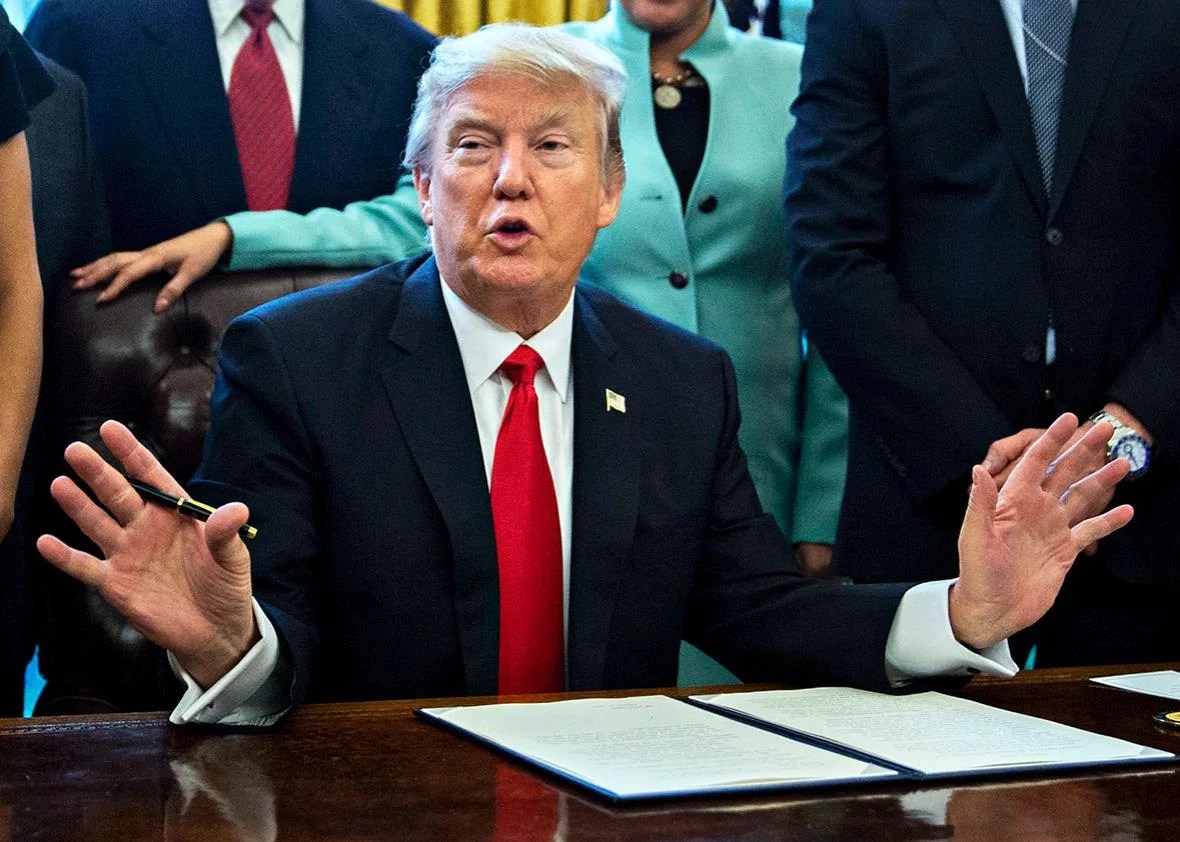
The public’s reaction to the court’s decision was predictably polarized, mirroring the broader political divide in the United States. Media outlets, in turn, reflected these divisions in their reporting, with some emphasizing the legal implications and others focusing on the political fallout.
Public Opinion on the Decision
The public’s reaction to the court’s decision was largely divided along partisan lines.
| Political Affiliation | Opinion on the Decision | Reasons for their Opinion |
|---|---|---|
| Democrats | Generally supportive | They believe that the decision upholds the principle of congressional oversight and that Trump should be held accountable for his actions. |
| Republicans | Generally opposed | They view the decision as an overreach of congressional power and believe that it is politically motivated. |
Media Coverage of the Decision, Federal appeals court says house committee can get trumps tax returns
Media outlets covered the decision with varying degrees of emphasis and tone.
| Outlet Name | Headline/Focus | Overall Tone |
|---|---|---|
| The New York Times | “Appeals Court Rules House Can Get Trump’s Tax Returns” | Neutral, factual reporting |
| Fox News | “Trump Tax Returns Case: Appeals Court Ruling a ‘Major Blow’ to President” | Critical of the decision, highlighting potential negative impacts on Trump |
| CNN | “Appeals Court Rules House Can Access Trump’s Tax Returns, Dealing Blow to President” | Supportive of the decision, emphasizing the importance of congressional oversight |
Future Legal Challenges and Potential Outcomes: Federal Appeals Court Says House Committee Can Get Trumps Tax Returns
The court’s decision has paved the way for the House Committee to access Trump’s tax returns, but it’s highly likely that this legal battle is far from over. Trump has a history of challenging legal decisions he disagrees with, and this case is no exception.
Several avenues for legal challenges remain, and the outcome of any future proceedings could have significant implications for both Trump and the future of congressional oversight.
Potential Legal Challenges
Several potential legal challenges could arise from the court’s decision.
- Challenge to the Scope of Congressional Oversight:Trump’s legal team might argue that the House Committee’s request for his tax returns exceeds the bounds of legitimate congressional oversight. They could contend that the committee’s stated purpose for seeking the returns—investigating potential conflicts of interest and tax fraud—is not a valid justification for accessing private financial information.
This argument could be based on the separation of powers doctrine, arguing that Congress is overstepping its authority by intruding on the executive branch’s domain.
- Challenge to the Procedural Process:Trump’s legal team might also challenge the procedural process used to obtain the tax returns. They could argue that the committee did not follow the proper legal procedures for issuing subpoenas or that the court’s decision violated Trump’s due process rights.
This argument would focus on the technical aspects of the legal process, rather than the substance of the request itself.
- Challenge to the Legitimacy of the Investigation:Trump’s legal team could challenge the legitimacy of the House Committee’s investigation itself. They might argue that the investigation is politically motivated and lacks a legitimate legislative purpose. This argument would attempt to discredit the entire investigation and undermine the committee’s authority to seek the tax returns.
Likelihood of Appeal to the Supreme Court
Given Trump’s history of aggressively pursuing legal challenges, it is highly likely that he will appeal the court’s decision to the Supreme Court. The Supreme Court has a history of being more receptive to arguments about executive privilege and presidential immunity, making it a potential venue for Trump to overturn the lower court’s ruling.
However, the Supreme Court has also recognized the importance of congressional oversight and the need for transparency in government. Therefore, the outcome of any appeal is uncertain and could hinge on the specific arguments presented by both sides.
Potential Outcomes of Future Legal Proceedings
The potential outcomes of any future legal proceedings are difficult to predict with certainty. However, several possibilities exist:
- Supreme Court Upholds Lower Court Ruling:If the Supreme Court upholds the lower court’s ruling, the House Committee will be able to access Trump’s tax returns. This would be a significant victory for congressional oversight and could set a precedent for future investigations into the financial dealings of presidents and other high-ranking officials.
- Supreme Court Reverses Lower Court Ruling:If the Supreme Court reverses the lower court’s ruling, it would be a major setback for congressional oversight. It could signal a shift in the balance of power between the legislative and executive branches, giving the president more power to shield his financial information from public scrutiny.
- Supreme Court Narrowly Upholds Lower Court Ruling:The Supreme Court could issue a narrow ruling that upholds the lower court’s decision but imposes certain limitations on the scope of congressional oversight. This outcome could provide some clarity on the boundaries of congressional power while still allowing the House Committee to access some of Trump’s tax returns.

